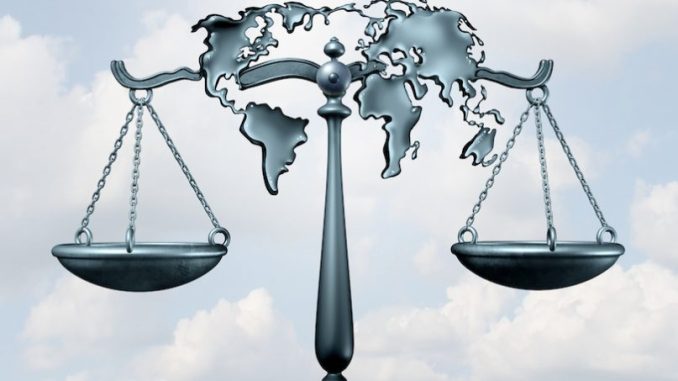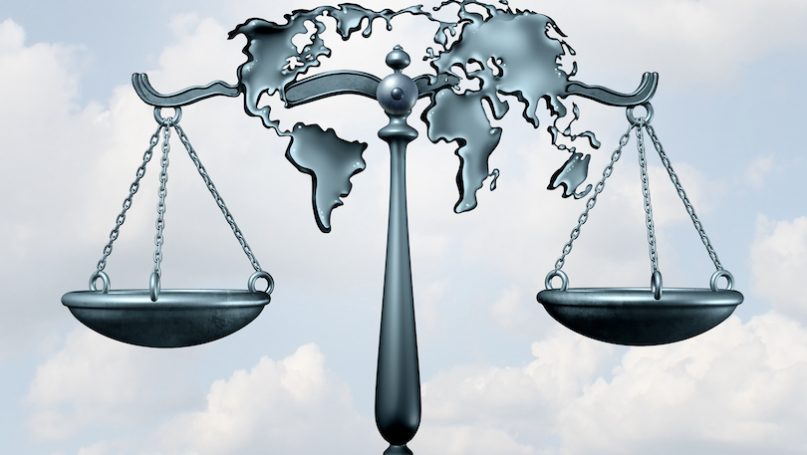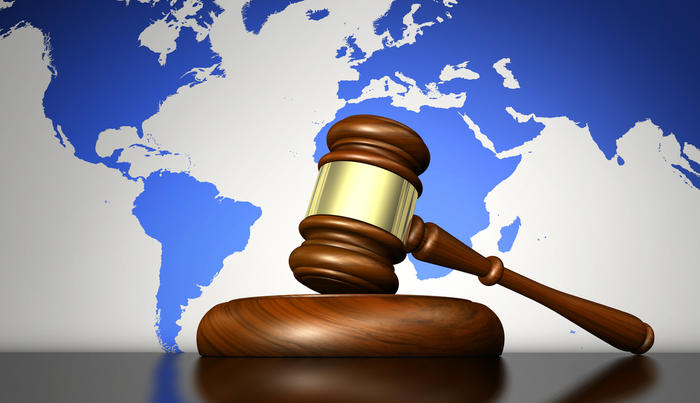
In today’s interconnected world, the significance of international law cannot be overstated. From trade agreements to human rights treaties, international law shapes the behavior of nations, organizations, and individuals across borders. This comprehensive guide explores the multifaceted nature of international law, delving into its principles, mechanisms, and impact on global governance.
Understanding International Law
International law encompasses a diverse array of legal principles, treaties, and customs that regulate relations between states and other international actors. Additionally, it addresses issues such as diplomacy, sovereignty, territorial disputes, and the resolution of conflicts through peaceful means.

The Foundations of International Law
International law is grounded in principles such as pacta sunt servanda (agreements must be kept) and jus cogens (peremptory norms), which form the basis for treaties and customary international law. Moreover, international legal scholars and institutions play a crucial role in interpreting and applying these principles to contemporary issues.
Key Components of International Law
International law comprises various components, including public international law, private international law, and supranational law. Furthermore, it encompasses specialized fields such as humanitarian law, environmental law, and human rights law, each addressing specific aspects of global governance.
Public International Law
Public international law governs relations between states and international organizations, encompassing treaties, customary practices, and principles of state responsibility. Furthermore, it regulates issues such as diplomatic immunity, state sovereignty, and the settlement of disputes through mechanisms like the International Court of Justice.
Private way
Private international law, also known as conflict of laws, deals with legal disputes involving individuals or entities from different jurisdictions. Besides, it provides rules for determining which legal system applies to cross-border transactions, contracts, and disputes, ensuring consistency and predictability in international commerce.
The Role of International Organizations
International organizations play a central role in the development and enforcement of international law. From the United Nations to regional bodies like the European Union, these institutions facilitate cooperation, negotiation, and the implementation of legal norms on a global scale. Furthermore, they provide platforms for dialogue, conflict resolution, and collective action on pressing global challenges.
The United Nations
The United Nations serves as the cornerstone of the international legal system, promoting peace, security, and cooperation among member states. Moreover, it administers various specialized agencies, tribunals, and programs that address issues ranging from human rights to disarmament and environmental protection.
Regional Organizations and Legal Integration
Regional organizations such as the European Union, African Union, and Organization of American States play a vital role in promoting legal integration and cooperation within their respective regions. Additionally, they develop regional legal frameworks, institutions, and mechanisms for resolving disputes and advancing common interests.
Enforcement and Compliance Mechanisms
Enforcement and compliance mechanisms are essential for ensuring the effectiveness and legitimacy of international law. Despite the absence of a centralized enforcement authority, international law relies on various means of compliance, including diplomatic pressure, economic sanctions, and the use of force under certain circumstances.
International Courts and Tribunals
International courts and tribunals adjudicate disputes between states, individuals, and organizations, providing forums for resolving legal conflicts and interpreting this topic. Moreover, institutions like the International Criminal Court hold individuals accountable for genocide, war crimes, and crimes against humanity, contributing to the development of international criminal law.
Diplomacy and Negotiation
Diplomacy and negotiation are fundamental tools for conflict resolution and consensus-building in this topic. Moreover, diplomatic efforts, mediated negotiations, and multilateral agreements play a crucial role in addressing global challenges such as nuclear proliferation, climate change, and refugee crises.
Challenges and Future Directions
Despite its achievements, this faces numerous challenges in the 21st century, including state sovereignty, power imbalances, and the rise of non-state actors. Nevertheless, ongoing efforts to strengthen international legal institutions, promote accountability, and enhance compliance offer hope for addressing these challenges and advancing global governance in the years to come.
Strengthening International Legal Frameworks
Strengthening the international legal frameworks entails ongoing efforts to fortify the structures and mechanisms that underpin global cooperation and governance. This involves initiatives aimed at enhancing the effectiveness, legitimacy, and adaptability of that to address emerging challenges and promote collective action among states and other stakeholders. Through collaboration, dialogue, and the development of innovative legal instruments, stakeholders seek to reinforce the foundations of international law and ensure its relevance and resilience in a rapidly evolving world.
Promoting Access to Justice
Promoting access to justice involves initiatives aimed at ensuring that all individuals and communities have equal opportunities to seek legal remedies and enforce their rights. This encompasses various measures such as establishing legal aid programs, providing pro bono services, improving the affordability and accessibility of legal services, and implementing reforms to enhance the efficiency and effectiveness of judicial systems. By removing barriers to justice and empowering marginalized groups, promoting access to justice contributes to the protection of human rights, the rule of law, and social inclusion.

Addressing Transnational Crimes
Addressing transnational crimes involves concerted efforts by the international community to combat criminal activities that transcend national borders. These crimes, which include human trafficking, cybercrime, drug trafficking, terrorism, and organized crime, pose significant threats to global security and stability.
Addressing transnational crimes requires cooperation and coordination among countries, international organizations, enforcement agencies, and other stakeholders. Strategies for combating transnational crimes may include strengthening legal frameworks, enhancing intelligence-sharing mechanisms, promoting international cooperation and extradition agreements, and implementing measures to disrupt criminal networks and their illicit activities. By addressing the root causes of transnational crimes and adopting a comprehensive approach that combines legal, diplomatic, and enforcement measures, the international community aims to protect individuals and communities from harm and uphold the rule of law on a global scale.
Strengthening International Institutions
Strengthening international institutions involves efforts to enhance the capacity, effectiveness, and legitimacy of organizations and bodies that play a central role in global governance and cooperation. This includes institutions such as the United Nations, World Trade Organization, International Monetary Fund, World Bank, and regional organizations like the European Union and African Union. Strengthening these institutions may involve reforms to improve decision-making processes, increase transparency and accountability, enhance resource mobilization, and adapt to evolving geopolitical realities and global challenges. By bolstering international institutions, the international community aims to foster greater collaboration, resolve conflicts, address pressing global issues, and promote peace, security, and sustainable development worldwide.
Leave a Reply
You must be logged in to post a comment.